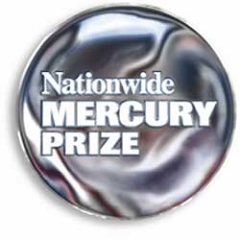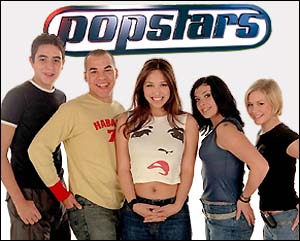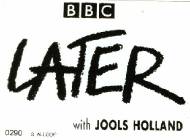Music Awards Shows on TV
The Brit Awards (1977-Present) Official Site | Wikipedia
The awards began in 1977 under the auspices of the BPI, the British record industry's trade association. The last BPI Awards show took place at the Albert Hall and was the first prime-time TV event. In 1989 they were renamed The Britannia Awards, or Brit Awards. MasterCard is the long-time sponsor of this annual event.

The Mercury Prize (1992-Present) Official Site | Wikipedia
The Mercury Prize, currently known as the Nationwide Mercury Prize for sponsorship reasons, is an annual music prize awarded for the best British or Irish album of the previous 12 months. It was established by the BPI and BARD (the British Association of Record Dealers) in 1992 as an alternative to the industry-dominated Brit awards. It was originally sponsored by the now-defunct telecoms company Mercury, followed in 1998 by Technics and starting in 2004 the Nationwide Building Society [1]. It is often observed that bands who are nominated for, or indeed win the prize experience a large increase in album sales, particularly for the lesser known nominees.

MOBO Awards (1996-Present) Official Site | Wikipedia
The MOBO (an acronym for Music Of Black Origin) Awards, established in 1996 by Kanya King, are held annually in the UK to recognise artists of any race or nationality performing music of black origin.
In 2006 the awards were hosted by Coolio and Gina Yashere.
There was further controversy in this year, when it was discovered underground band the Choong Family were removed from the short list for newcomer due to pressure from Def Jam to include Lady Sovereign on the list. The decision to drop the award categories of World Music and Jazz prompted protests from jazz musicians outside the event. Beyoncé Knowles was booed for not showing up to the event despite winning 3 awards. Corinne Bailey Rae went on to win the prize for best UK newcomer. Akala, the British rapper, caused a stir when he won best hip hop act, beating competition from acts such as Kanye West.

MTV Video Music Awards (1984-Present) Official Site | Wikipedia
MTV Video Music Awards were established in 1984 by MTV to celebrate the top music videos of the year. Originally beginning as an alternative to the Grammy Awards, the MTV Video Music Awards is now a respected pop culture awards show in its own right. They are presented annually and broadcast live on MTV and CTV in Canada[1]. Past broadcasts have been held in New York City, Los Angeles, California and Miami, Florida.
The statues given to winners of the award are often called "Moon Men" because the statue is of an astronaut on the moon, one of the earliest representations of MTV. The "Moon Man" award is manufactured by R.S. Owens & Company in Chicago, IL, who has been producing the award since 1984. The eligibility period for the Video Music Awards begins July 1. Before 2002, the VMAs were traditionally held on the first Thursday of September. It was decided to move the awards back a week so that it wouldn't conflict with the anniversary of the September 11, 2001 attacks.
For other MTV Awards Shows... click here.
The Grammys (1959-Present) Official Site | Wikipedia
(originally called the Gramophone Awards, commonly abbreviated as the Grammys or GRAMMYs), presented by the Recording Academy known as NARAS, (an association of Americans professionally involved in the recorded music industry)for outstanding achievements in the recording industry, is one of four major music awards shows held annually in the United States (along with the Billboard Music Awards, the American Music Awards, and the Rock and Roll Hall of Fame Induction Ceremony). However, the Grammys, usually held in February, are considered the approximate equivalent to the Oscars in the music world.

















